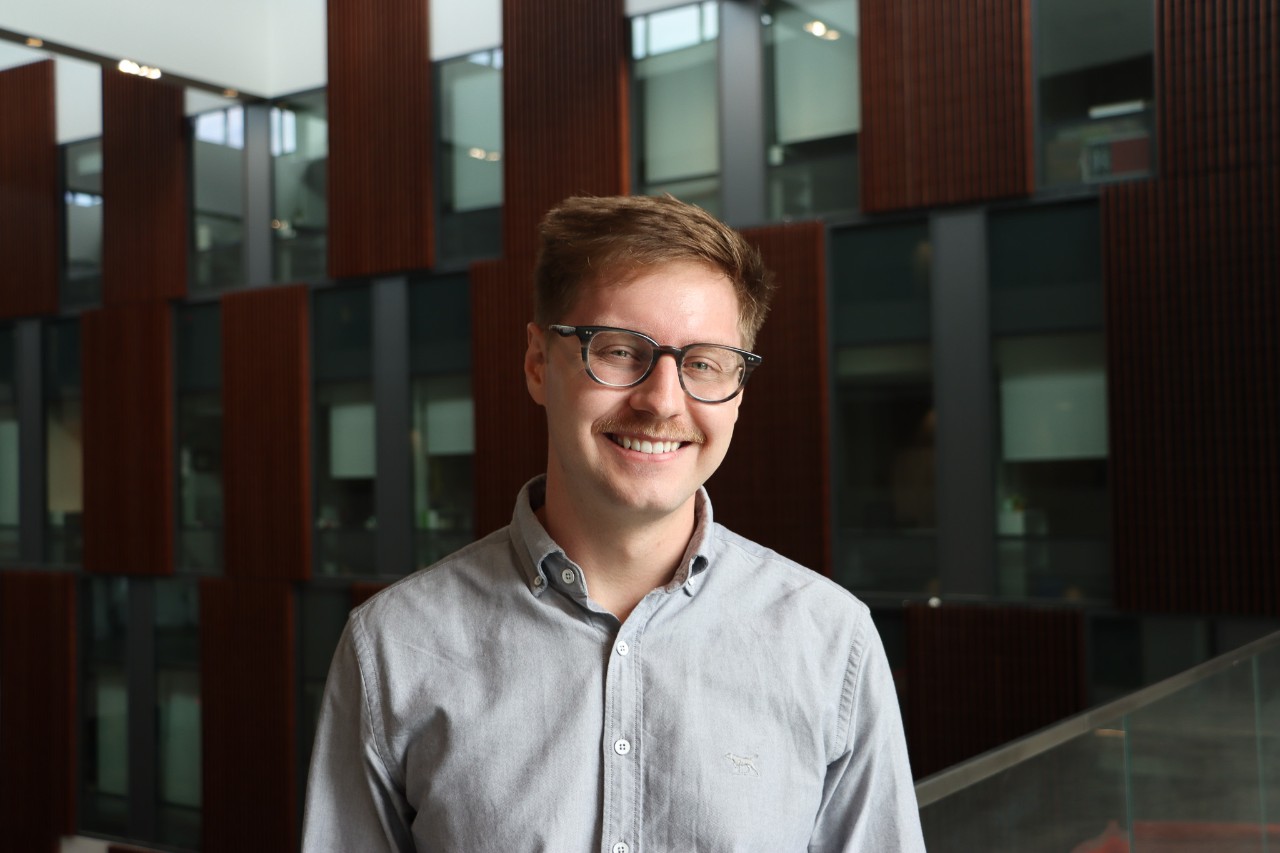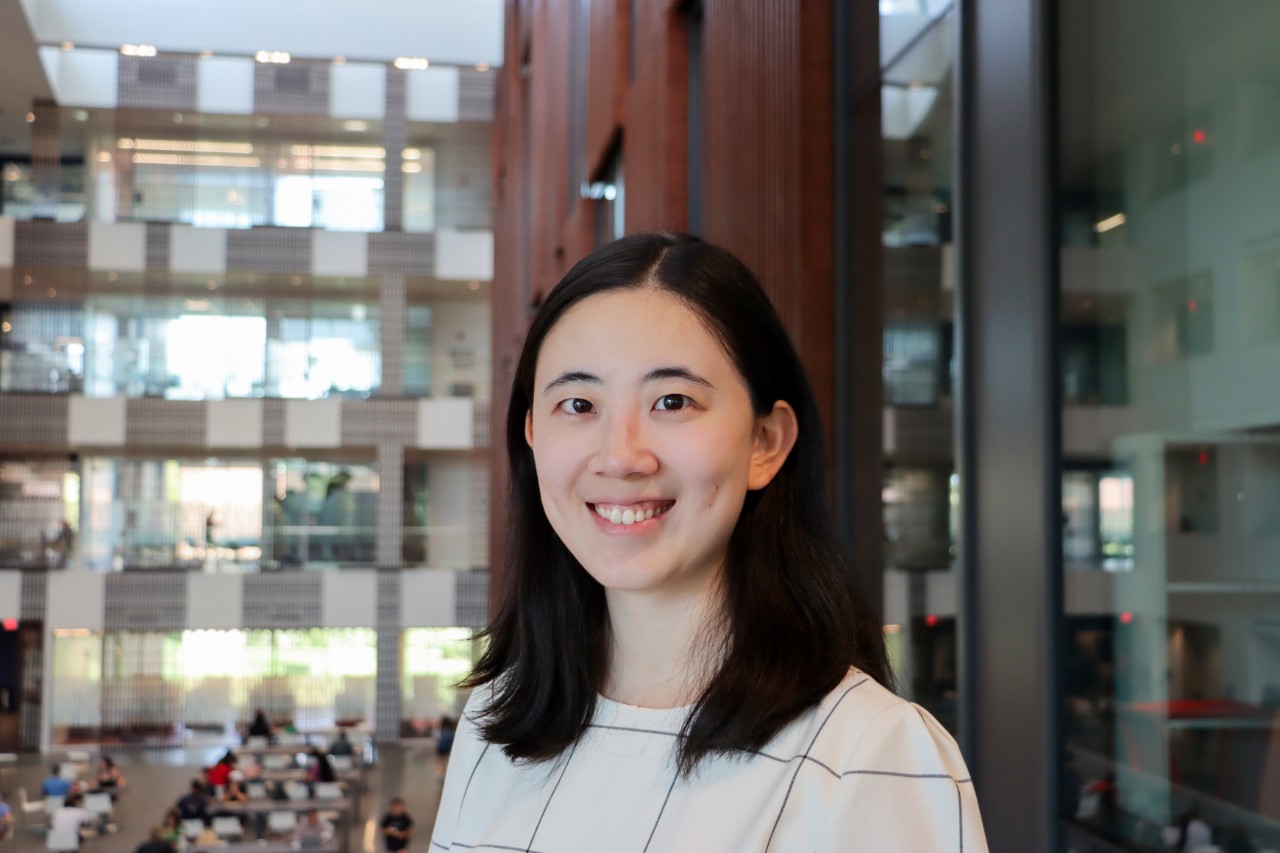
Moving forward: UC College of Arts & Sciences drives curriculum into new territory
Experts in AI, big data, sustainability join faculty to meet today's challenges
With an academic legacy reaching back more than 200 years, the University of Cincinnati's College of Arts and Sciences has its eye firmly on the future. From artificial intelligence and big data to sustainability, new learning is crucial to keeping the college out in front of rapidly evolving study, research and teaching.

UC College of Arts and Sciences Dean James Mack. Photo/Provided
“Our college is critical to the creation and dissemination of knowledge in the region,” Dean James Mack said. “These areas are going to continue to grow, and we have attracted top faculty in their areas to help our communities prepare for this changing landscape.”
Academic thought leaders have pivoted quickly to explore the impacts of AI and sustainability, through pedagogy and curriculum.
In September, the American Association of Colleges and Universities launched its Institute on AI, Pedagogy and Curriculum, designed to help departments, programs, colleges and universities respond to the challenges of AI, including its impact on teaching and learning outcomes.
Interdisciplinary sustainability programs have blossomed across college and universities, focusing on the hard science and soft skills students need to succeed in those career paths.
We need to understand the ethical ways to use AI. We need to understand how we can use AI to write and express ourselves. And we need to be able to push the boundaries of using big data to better understand the world around us.
Dean James Mack, UC College of Arts and Sciences
Embracing new learning
This semester, A&S has gone to a proactive position with new faculty members who are experts in AI/big data and sustainability. New faculty include Laura Zanotti, incoming director of the School for Environment and Sustainability; Hyunjoong Kim, assistant professor of mathematics; Chenxing Xie, assistant professor of technical and professional writing in the Department of English, and Assistant Professor of Philosophy Andre Curtis-Trudel.
“Each of these faculty is an expert in AI/Big data or sustainability. Individually, they will help our students learn and understand different aspects of these fields," Mack said. “We need to understand the ethical ways to use AI. We need to understand how we can use AI to write and express ourselves. And we need to be able to push the boundaries of using big data to better understand the world around us."
With regard to sustainability, he adds: “We have brought on a leader who will organize our efforts into a strong vision and mission that others in this area will follow.”
Changing world, changing needs
It could be seen as a stretch to imagine how philosophy, professional writing and mathematics intersect with AI, or how sustainability relates to communication.
Academic partnerships that would have seemed completely incongruous as few as 20 years ago are emerging as the pathway to the future and keeping the college on the cutting edge of the challenges of rapidly evolving study.
Here, meet the new A&S faculty who will help the college meet new academic challenges, while sustaining its historic reputation for foundational liberal arts education.
Laura Zanotti, Director, School for Environment and Sustainability

Incoming director of the A&S School for Environment and Sustainability Laura Zannoti. Photo/Provided
Zanotti says she was drawn to the position of director of the School of Environment and Sustainability because, in part, of its transdisciplinary nature.
"Rarely do you see interdisciplinary programs prioritize robust environmental humanities and environmental science and social sciences approaches at the same time.
The School of Environment and Sustainability at UC offers both experiences to our students alongside a dynamic co-op, internship, research, and abroad experiences."
She also envisions broad opportunities for students in environment and sustainability going forward--chances for those students to make real change in the future that is theirs.
"With students, we plan to continue our research efforts to make a local to global impact. We also hope to launch a sustainability lab that can serve as incubator for creativity, innovation and ongoing community engagement."
Hyunjoong Kim, assistant professor of mathematical sciences

Assistant professor of mathematical sciences Hyunjoong Kim. Photo/Beth Vleaminck
Assistant professor of Mathematics Hyunjoong Kim sees his interdisciplinary teaching aligned with AI and big data through mathematical approaches on biological systems involving randomness, he says.
"Recently, my focus has expanded to solving problems in cognitive science and collective animal behavior by using mathematical tools in reinforcement learning. Integrating these tools into our curriculum.
"My work aligns with the college’s mission to foster interdisciplinary learning and provide students with a fundamental understanding of reinforcement learning. Moreover, this approach prepares students to tackle real-world challenges through the lens of reinforcement learning."
Andre Curtis-Trudel, assistant professor of philosopy

Assistant professor of philosophy Andre Curtis-Trudel. Photo/Beth Vleaminck
Curtis-Trudel focuses his research and teaching on the exploration of humanity's relationship with AI, he says.
"It's probably a cliche at this point to say that AI is coming to play an important role in nearly every aspect of our lives," he said. "What opportunities does this shift present? What are the challenges? How can we learn not just to live with AI, but to live well with AI?"
He continues: "In my teaching, I promote AI literacy. I want my students to understand how these tools work and what they are capable of. This helps students understand the limitations of AI, and, perhaps more importantly, helps them think about how they can use AI to help them flourish academically.
"As educators, we're all too familiar with the pitfalls of AI tools like ChatGPT. But there are real opportunities here for using AI to help empower our students. We need to think creatively about how to promote AI literacy in our students and equip them to use these tools as effectively as possible."
Chenxing Xie, assistant professor of professional and technical communication

Chenxing Xie, assistant professor of professional and technical writing. Photo/Beth Vleaminck
Xie's research stresses the integration of ethical AI in health-risk communication to empower and amplify voices from at-risk publications, she says.
"In my career at UC, I have been and will continue to merge my research with my teaching by developing AI-integrated pedagogical modules with a focus on AI rhetoric and associated ethical issues aiming to connect my students with the fast-evolving AI-powered industry," she says.
"As the world is evolving rapidly with AI and big data breakthroughs, I think it is very important for students to learn, experience, and research AI while they are in college and graduate school. My research and the fusion of my study with teaching will allow me to develop cutting-edge courses in the English department for students to get hands-on experience with AI and big data, gain opportunities to talk to experts in the field, and work on ethical AI research projects."
Featured image at top: Futuristic image. Credit/BusinessStar for Pixabay
Related Stories
Moving forward: UC College of Arts & Sciences drives curriculum into new territory
October 22, 2024
With an academic footprint reaching back nearly 200 years, UC's College of Arts and Sciences has its eye firmly on the future. From artificial intelligence and big data to sustainability, new learning is crucial to keeping the college out in front of rapidly evolving study, research and teaching. “Our college is critical to the creation and dissemination of knowledge in the region,” said Dean James Mack. “These areas are going to continue to grow, and we have attracted top faculty in their areas to help our communities prepare for this changing landscape.” Academic thought leaders have pivoted quickly to explore the impacts of AI and sustainability, through pedagogy and curriculum.
Futuristic cars may soon take flight
April 28, 2021
The Cincinnati Innovation District and University of Cincinnati team up with partners in 1819 Innovation Hub DriveOhio, Cincinnati Bell and Microsoft to innovate with UC talent and help bring future innovation within reach in FlyOhio student challenge.
University of Cincinnati grads make Forbes 30 Under 30 list
August 30, 2024
From an equitable development advocate to a global comedy sensation, Forbes highlighted five young University of Cincinnati graduates whose talents and ambitions are transforming the region’s startup scene.
